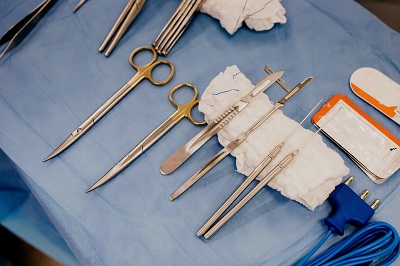Procedures and Steps for D-Class Medical Device Registration with the Saudi SFDA
The Saudi Food and Drug Authority (SFDA) regulates medical devices in Saudi Arabia, including D-class medical devices, which are considered low-risk. The process for registering a D-class device is streamlined but still requires careful attention to ensure compliance with SFDA standards.
Step-by-Step Process for D-Class Medical Device Registration
1. Determine Device Classification
- D-class medical devices are low-risk devices. They typically include non-invasive devices such as bandages, diagnostic tools, and accessories that are not intended for critical care. Ensure that your device meets the criteria for D-class classification.
The SFDA categorizes devices into four classes based on their risk:
- Class A (Low Risk): Devices that pose minimal risk.
- Class B (Moderate Risk): Devices with moderate risk.
- Class C (High Risk): Devices with significant risk.
- Class D (Very High Risk): Devices that pose the highest risk.
For D-class devices, the regulatory process is simplified compared to higher-risk classes but still requires attention to detail in documentation and safety standards.
2. Appoint a Local Authorized Representative (LAR)
If your company is foreign (not based in Saudi Arabia), you must appoint a local authorized representative (LAR) who is licensed by the SFDA. This representative will act on behalf of your company for regulatory matters, including submitting the registration application and ensuring compliance with SFDA requirements.
The LAR is responsible for communication with the SFDA throughout the registration and post-market phases.
3. Prepare Required Documentation
The following documents are generally required for registering a D-class medical device in Saudi Arabia:
- Manufacturer Information: Documentation proving that the manufacturer is a legitimate entity (e.g., business registration documents).
- Device Information: Detailed description of the device, including its intended use, features, and how it functions.
- Device Labeling: Labels, packaging, and user manuals in Arabic and English, including information on proper use, warnings, and instructions.
- ISO 13485 Certification: Evidence that the manufacturer follows a quality management system that complies with international standards.
- Certificate of Free Sale (CFS): A certificate from the home country that states the device is legally sold and marketed.
- Declaration of Conformity: A statement from the manufacturer declaring that the device complies with Saudi regulations and relevant international standards (e.g., ISO, IEC).
- Product Testing and Safety Reports: In some cases, you may need to provide testing reports or certificates for device safety, performance, and reliability.
- Clinical Data (if applicable): Clinical data to support the device's safety and effectiveness. This may be necessary for some D-class devices, depending on their function.
4. Submit the Registration Application via MDES
- MDES (Medical Device Electronic Services) is the online platform for submitting medical device registration applications in Saudi Arabia.
- Your LAR will submit the registration application through this platform.
- The application should include:
- The completed application form.
- All required documentation.
- Payment of the registration fee.
The SFDA may request additional information or clarification at this stage, so it’s important to ensure that all details are accurate and complete.
5. SFDA Review Process
- Once the application is submitted, the SFDA will review the documents. For D-class devices, the review process is relatively quick and straightforward since the risk is low.
- The SFDA will check for:
- Compliance with the relevant medical device regulations.
- Proper labeling and documentation in compliance with the SFDA guidelines.
- The device’s conformity with international standards (e.g., ISO 13485, ISO 14971, etc.).
The review process typically takes a few weeks to a couple of months, depending on the complexity of the device and the completeness of the application.
6. SFDA Approval and Registration
- If the SFDA is satisfied with the application and supporting documents, they will approve the device for registration and issue a registration certificate.
- The registration certificate is valid for 5 years. After 5 years, you must renew the registration for continued marketing of the device in Saudi Arabia.
Key considerations during this stage:
- The approval may include conditions for post-market surveillance, including reporting any adverse events or product defects.
- If the SFDA requests any modifications or additional information, your LAR will need to address these issues promptly.
7. Post-Market Surveillance
- After your device is registered and on the market, the manufacturer and LAR must comply with post-market surveillance requirements.
- This includes:
- Monitoring the device’s performance.
- Reporting adverse events, complaints, or device failures to the SFDA.
- Cooperating with any SFDA audits or inspections.
8. Renew Registration (Every 5 Years)
- D-class medical devices must be renewed every 5 years.
- Before the expiration date, the LAR should submit a renewal application through the MDES platform, ensuring that all information remains up-to-date and that the device continues to meet SFDA requirements.
Key Points to Keep in Mind:
- D-class devices are considered low-risk, but they still need to comply with SFDA regulations.
- A local authorized representative (LAR) must be appointed for foreign manufacturers.
- The registration process is streamlined but involves important documentation, including quality certifications, labeling, and safety reports.
- The registration certificate is valid for 5 years.
- Post-market surveillance is required to track the performance and safety of the device once it is on the market.
By following these steps, you can successfully register your D-class medical device with the Saudi SFDA and ensure compliance with local regulatory requirements. If you need further details or clarification on any of the steps, feel free to ask!
.png)
.jpg)

.png)

.png)